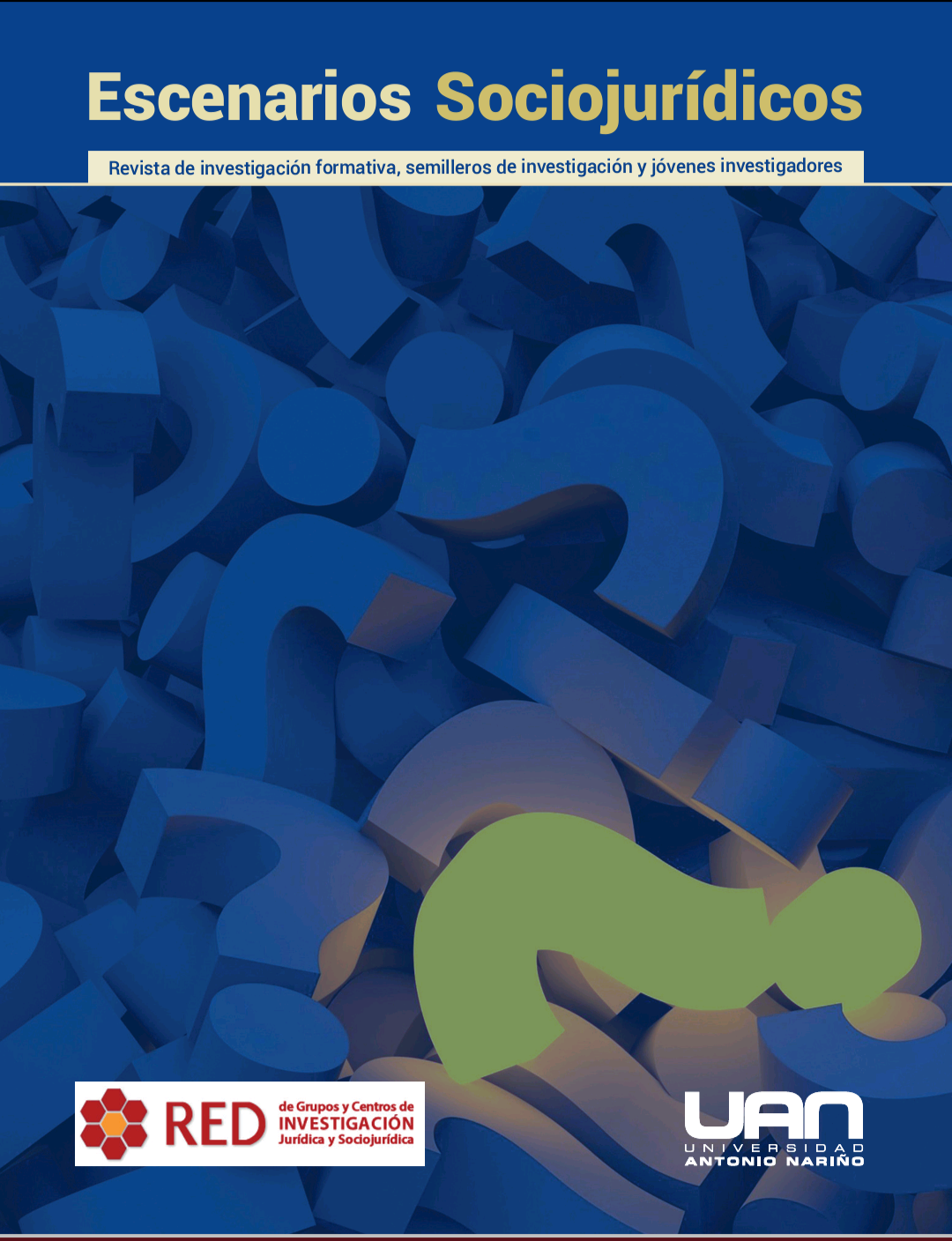Evolución probatoria con finalidad de sostenibilidad procesal: Un enfoque a partir de las redes sociales y la virtualidad.
Abstract
The sustainable development goals, also known as the 2030 Agenda, in which a large series of goals and indicators are grouped that seek to guide global efforts to achieve sustainable development in all social, economic and environmental aspects, within the which we can observe the Sustainable Development Goal number 16, "Peace, Justice and Strong Institutions", established by the United Nations, represents a global commitment to promote peace, guarantee justice and strengthen institutions throughout the world. Thus, this objective seeks to guarantee equal access to justice for all, promoting transparent, efficient and inclusive judicial systems. Therefore, being an inclusive system, it allows any procedural action that is being carried out to be carried out in person and virtually, that is, through these two modalities, the assessment of the evidence must provide certainty. to all parties, that is, by means of parameters that must establish the reality that this modality of virtuality brings with it in the request, in the decree, the practice and the evaluation of the evidence, in addition to being taken into account as elements probative materials that can be extracted from social networks, which meet the necessary requirements of relevance, conduct and need for it. Consequently, adjusting the judicial system to the guidelines established from the perspective of globalization and its commitment to more sustainable societies, the intelligent application of technology is given, in harmony with the changing legislation that allows building a future where humanity and the sustainability are intertwined in a promising dance in which a symbiosis of virtual judicial proceedings is generated, where it is possible to cover aspects such as electronic communication between the procedural subjects, the presentation of writings, evidence and the holding of virtual hearings, among others.
Downloads
References
BARRIOS. La teoría de la sana crítica. Catedrático de derecho procesal penal y constitucional. Academia de derecho.
COLOMBIA. Ley 527 de 1999. Sobre la cual se define y reglamenta el acceso y uso de los mensajes de datos, del comercio electrónico y de las firmas digitales, y se establecen las entidades de certificación.
COLOMBIA. Ley 1564 de 2012, por medio de la cual se expide el Código General del Proceso, CGP y se dictan otras disposiciones, Diario Oficial, 12 de julio. Secretaria del Senado.
DE LA CUESTA Y GUTIÉRREZ. Colombia. Valoración de la prueba electrónica en Colombia, su validez y aplicación en los años 2017-2019. Universidad Libre Seccional Pereira.
ECHANDÍA, Devís. Compendio de la prueba judicial, Tomo II, En: Alvarado Velloso. El testimonio de terceros.
ECHANDÍA, Devís. Compendio de la prueba judicial, Tomo II. En: Alvarado Velloso. Edi: Rubinzal Kulzoni.
DUARTE, María Fernanda y MANRRIQUE, Yeimy Juliana. La justicia digital en Colombia. En: Sobre la administración de justicia en Colombia. Un estudio normativo del expediente electrónico y su consolidación en el CGP y el decreto 806 de 2020. Universidad Libre de Colombia, 2021.
GONZÁLEZ Y GIMENO. La era de la justicia digital y las nuevas tecnologías en la Administración de Justicia. Revista acta judicial.
LONDOÑO JARAMILLO. Sobre la conducencia, pertinencia y utilidad de la prueba. Tribunal Administrativo de Arauca. 2015.
LÓPEZ GONZÁLEZ. Sobre el proceso declarativo del valor probatorio de la prueba. Juzgado Séptimo Civil Municipal de Manizales Caldas de 06 de mayo de 2021.
PARRA QUIJANO, Jairo. Manual de Derecho Probatorio. Ediciones Librería el Profesional, IV ed. 1994.
REAL ACADEMIA ESPAÑOLA. Diccionario de la lengua española. Edición del tricentenario. 2022.
YEPES, PÉREZ, & PEINADO. Aplicación de la prueba electrónica en el marco normativo colombiano. Institución Universitaria Politécnico Grancolombiano. 2022.
Downloads
Published
-
Abstract338
-
PDF (Español)119
How to Cite
License
Copyright (c) 2023 Luis Alexander Ramos Parada , Esmeralda Garcia Obando, Ana Sofía Castillo Barrero, Neal Andrea González Calderón

This work is licensed under a Creative Commons Attribution-NonCommercial-ShareAlike 4.0 International License.


 Portal de Ciencia Abierta
Portal de Ciencia Abierta